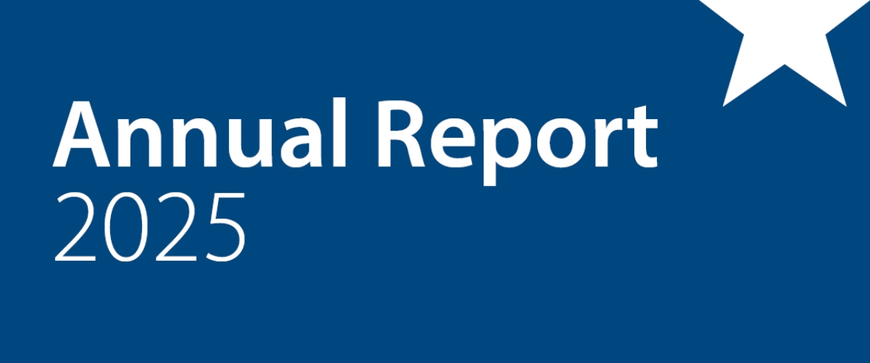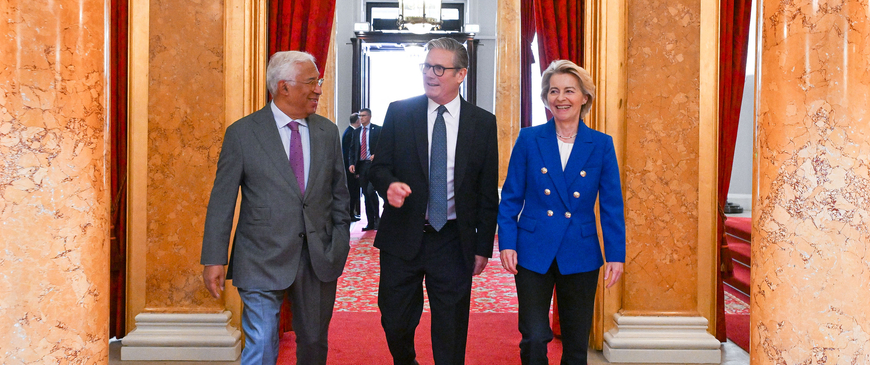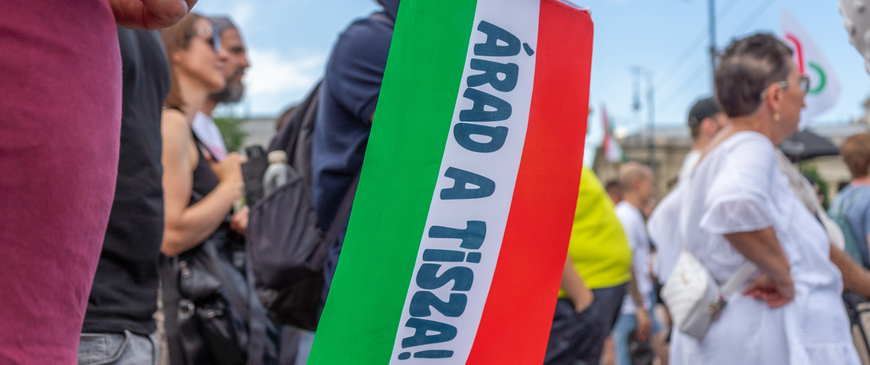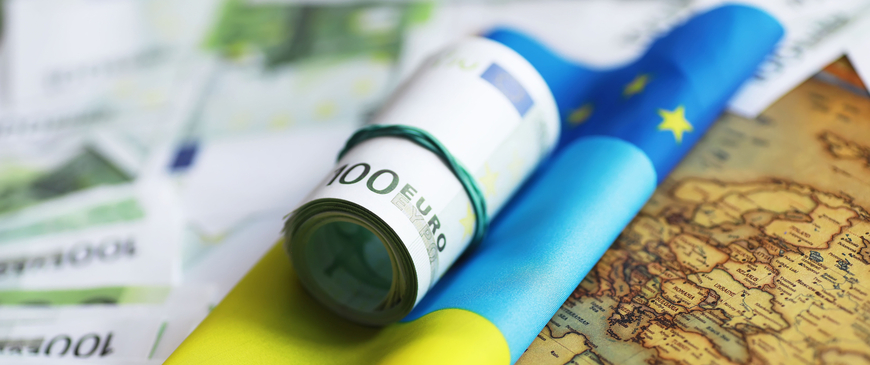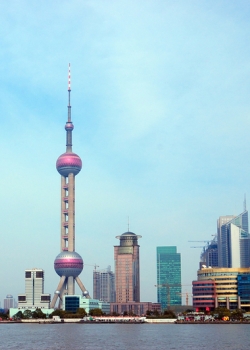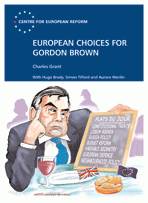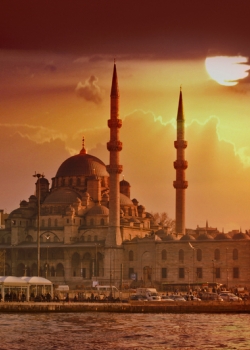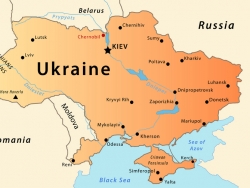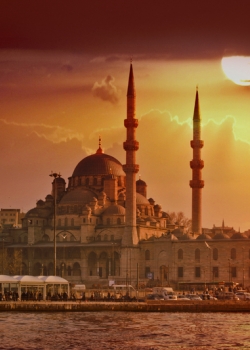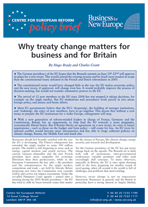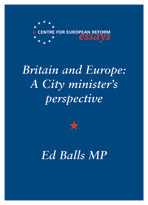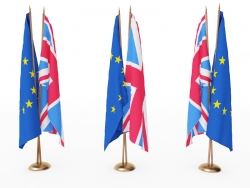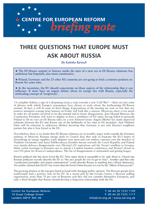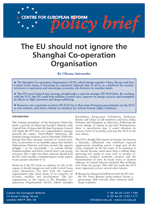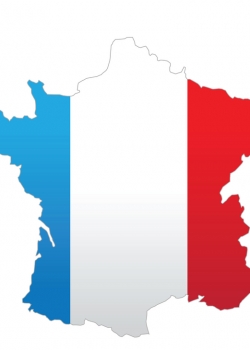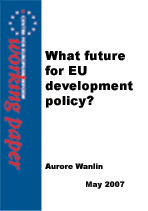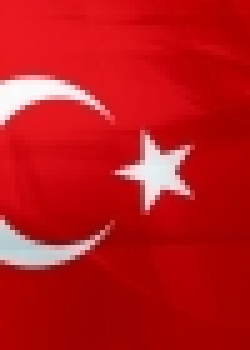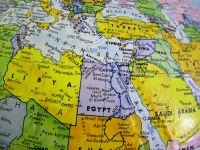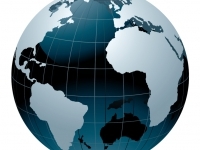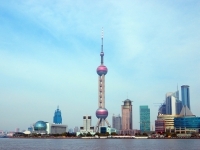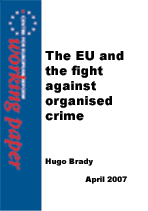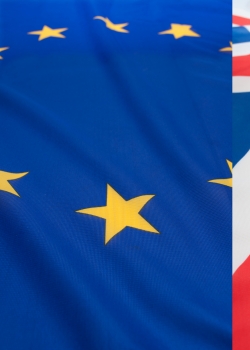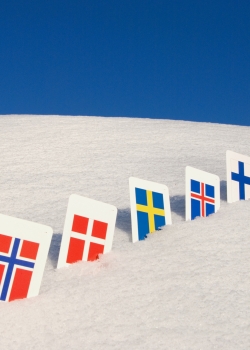Research
Europe and America’s debate about foreign policy
01 June 2007
Washington’s holiday from strategic debates is over. In the years immediately after September 11th, feelings of solidarity with a president at war prevented serious discussions on the merits of US foreign policy.
Industrial policy – back to the future?
01 June 2007
In his book ‘Testimony’, Nicolas Sarkozy, the newly elected French president, wrote that his finest hour as finance minister of France was the government’s rescue of Alstom, a French maker of high-speed trains and telecoms equipment. The company’s banks had refused to extend further credit, and with Siemens – a...
European choices for Gordon Brown
01 June 2007
Gordon Brown becomes prime minister at a pivotal moment for the European Union. French President Nicolas Sarkozy and German Chancellor Angela Merkel have emerged as powerful European leaders.
Sarkozy, secularism and Turkey’s European future
01 June 2007
Can things get worse for Turkey? The presidential election is stalled; the army threatens to intervene; millions are protesting in the streets; EU negotiations remain partly suspended; terrorism in the South-East could prompt military forays into northern Iraq; and the new French president wants to see Turkey in a Mediterranean...
On oligodemocracy and people power in Ukraine
31 May 2007
There shall be no war, at least not now. On Sunday, President Viktor Yushchenko and Prime Minister Viktor Yanukovich agreed to hold early elections in September. In doing so, they halted the country’s slide toward violence, which began with Yushchenko’s dissolution of the Ukrainian parliament in April and culminated this weekend with a standoff between Interior Ministry troops (loyal to Yushchenko) and traffic police (controlled by Yanukovich). But even if the Sunday agreement holds – and law-makers from the prime minister’s side already dispute it – Ukraine has become an uglier place for it. In the end, it was political and military muscle that settled the differences. A conflict may have been averted but Ukraine’s tentative steps to build democracy based on rules and institutions were dealt a severe blow.
Issue 54 - 2007
25 May 2007
- Sarkozy, secularism and Turkey’s European future, Katinka Barysch
- Europe and America’s debate about foreign policy , Tomas Valasek
- Industrial policy – back to the future?, Simon Tilford
Why treaty change matters for business and for Britain
21 May 2007
If Britain blocks Germany's plans to forge an agreement on a new EU treaty, the consequences would be grim, according to this policy brief published by the Centre for European Reform and Business for New Europe.
Britain and Europe: A City minister's perspective
18 May 2007
Britain's membership of the EU strengthens London as a global financial centre, argues City Minister, Ed Balls. The UK should engage actively with the EU, to ensure that its financial regulation is proportionate, flexible, and implemented effectively.
If Nixon could go to China, Brown can go to Brussels
17 May 2007
W.B. Yeats lamented a Europe where, in politics at least, “the best lack all conviction while the worst are full of passionate intensity”. As Tony Blair bows out as UK prime minister, British pro-Europeans will identify with his sentiments.
Three questions that Europe must ask about Russia
16 May 2007
On Friday 18 May 2007, EU leaders meet Russian President Vladimir Putin in Samara. The summit will have few tangible results, partly because the Union is internally divided.
The EU should not ignore the Shanghai Co-operation Organisation
11 May 2007
The Shanghai Co-operation Organisation (SCO) is an organisation of increasing strategic importance. It brings together Russia, China and four Central Asian states.
Nicolas Sarkozy: Turkophobe and protectionist?
08 May 2007
Most EU governments wanted Nicolas Sarkozy to win the presidential election. They think his liberalising economic agenda stands a fair chance of boosting France’s lacklustre economic performance.
What future for EU development policy?
04 May 2007
The European Union, together with its member-states, is the world's largest source of development aid. Yet the Union under-performs as a donor: its various governments and the Commission seldom co-ordinate their efforts, and often fail to think strategically.
What Turkey’s crisis means for the EU
03 May 2007
Turkey has aborted its presidential election and called for an early parliamentary one. The army, it appears, is still on stand-by. Prime Minister Erdogan accused the country’s highest court of having fired “a bullet at democracy” by declaring the first round of voting on his presidential candidate, Abdullah Gul, invalid.
The EU and Arab reform
27 April 2007
The Arab Reform Initiative held its annual conference in Amman, Jordan, on 18th April. Founded in 2005, ARI is a consortium of a dozen research centres that advocate peaceful and gradual political, economic and social reform in the region. A few non-Arab think-tanks are also involved, including the Centre for European Reform, but it is very much led and managed by Arab research centres. The CER is part of ARI because it believes that ARI offers an excellent opportunity to encourage reform in a region that is deeply suspicious of outside influence.
Globalisation: Business versus politics?
20 April 2007
The CER and Accenture brought together a group of business people, journalists and policy analysts today, to discuss what the world may look like in 2020. What struck me is that there is not one debate about globalisation but several. And they hardly touch.
The EU, the US and Taiwan
16 April 2007
Taiwanese domestic politics is nasty and messy. The two main political forces – the KMT, which believes in ‘one China’, and the DPP, which leans towards an independent Taiwan – hate each other with venom that is unmatched in most other functioning democracies.
The EU and the fight against organised crime
06 April 2007
The EU needs to tackle a new threat: international organised crime. Europe's criminal underworld is taking advantage of new opportunities to commit crime that come with the increasing mobility of people, goods and services across national boundaries.
Britain and the EU: a crisis looms
02 April 2007
British politicians are too complacent about Germany’s plan to salvage large parts of the EU constitutional treaty. They assume that other countries will reject the German presidency’s scheme, so sparing Britain from isolation. Indeed, there is now a consensus that stretches from UK treasury officials to Conservative leaders to The...
We are all Nordic now, or are we?
02 April 2007
The EU drew up its Lisbon reform agenda in 2000 with the thinly disguised goal of catching up with the US. But the idea that Europe should strive to adopt ‘Anglo-Saxon’ capitalism is abhorrent to those who cherish Europe’s more extensive welfare states.

